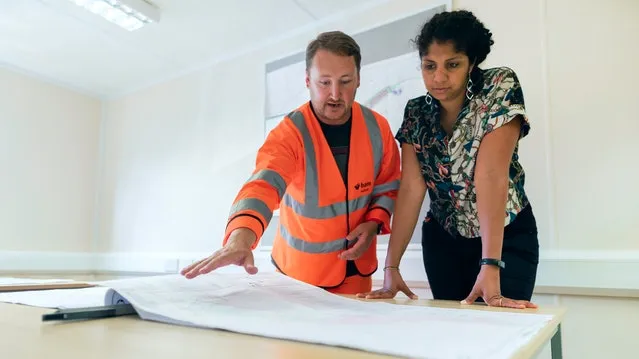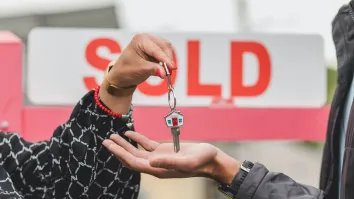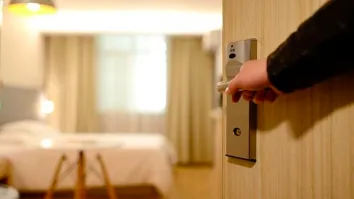
Jakarta’s retail supply to rise 2.5% annually till 2025
By the end of 2021, total retail supply will reach 2.91 million sq m.
After being postponed due to the pandemic, Colliers says Pondok Indah Mall 3 officially began operation. Located within a premium area in South Jakarta, this newly operating mall brought the total retail supply in Jakarta to register at 4.86 million sq m in Q2 2021. It is undeniable that the pandemic has had an impact on shopping centre construction activities, especially in Jakarta. Apart from Aeon Mall Tanjung Barat, which seems ready to operate around the second half of 2021, additional retail supply in Jakarta is relatively limited. Currently only Lippo East Mall Side and Menara Jakarta Shopping Mall are under construction and expected to be completed consecutively in 2022 and 2023.
In two consecutive quarters the cumulative supply stays at 2.84 million sq m. Three malls are expected to be completed in the remainder of 2021 in the greater area. The addition of three malls will bring the total retail supply in the greater area to register at 2.91 million sq m by the end of 2021, an increase of 2.5% YOY.
Here’s more from Colliers:
Ramadhan (fasting month) and Eid Holiday helped to elevate shopping activities, especially at the malls, which are always visitors’ destinations. However, this temporary recovery will be once again challenged by the recent increasing number of COVID-19 cases. It is highly likely that the retailers are still expected to face difficult times in 2021.
After the closure of several large grocery and department stores in the previous quarters, some big retailers have once again announced closures of their other stores permanently and changes in business models. Nevertheless, the retail business is expected to continue to be dynamic and some landlords are rejuvenating their tenant composition. Inviting new retailers that relate to lifestyle including sports centres and upgrading the supermarkets is expected to boost the number of visitors. Other than that, some fashion and F&B retailers have continued expanding despite smaller volumes.
As mentioned, this pandemic has driven the average occupancy in Jakarta towards a downward trend in the last 1.5 years. Coupled with new supplies, the average occupancy rate was recorded at 72% in Q2 2021, a drop of 1.4% QOQ. A newly opened mall during the pandemic certainly will face a difficult situation, especially in the first year of operation. Nevertheless, having pocketed highly committed tenants, the mall can expect to maintain a stable average occupancy rate. In the greater area, the average occupancy was relatively stable in the last three months at 71.8%. Larger supply is expected to come, bringing the average occupancy to drop about 1.5% compared to Q2 2021.
As this second COVID-19 wave causes most people to work and stay at home, online will again be the main sales channel. Retailers should continue to focus on collaborations with the many e-commerce players present in Indonesia. The second wave of the COVID-19 outbreak is expected to reduce visitor capacity and mall operating hours. These policies will be burdensome for both retailers and landlords. Additionally, it is very possible that we will once again see that more stores find it difficult to survive in this hard situation.
Remain flexible in terms and payments
After remaining relatively stable the last two consecutive quarters, the operation of the new mall set higher rental; the average rent was recorded at IDR567,007 in Q2 2021, an increase of 0.7% QOQ. Afterwards, most landlords will likely still set the same rental rates as during the pandemic. Even after a mall is completed, it is not yet expected to have an effect on the calculation of the average rental rate up to the end of 2021. In the greater area, the average rent was recorded at IDR380,934 – also relatively stable in the last six months. Again, new malls will bring the average rent to grow by around 1% compared to the current rate.
Landlords are more flexible in terms of rental payments and payment terms. We see lower percentages of down payments retailers must pay to landlords at the beginning of the lease and rebates on rent. We expect landlords to remain flexible considering the current COVID-19 situation in Indonesia.
The average service charge has also remained relatively stable in the last one year. In Jakarta, the average service charge currently is recorded at IDR149,199, while in the greater area at IDR117,358. Even though only slightly, newly operating malls will increase the average service charge calculation both in Jakarta and the greater area.
The service charge will eventually be increased by landlords once the pandemic is under control or over and the economic situation in Indonesia stabilizes. Increases in service charge are often related to increases in labor costs and inflation.



















 Advertise
Advertise







